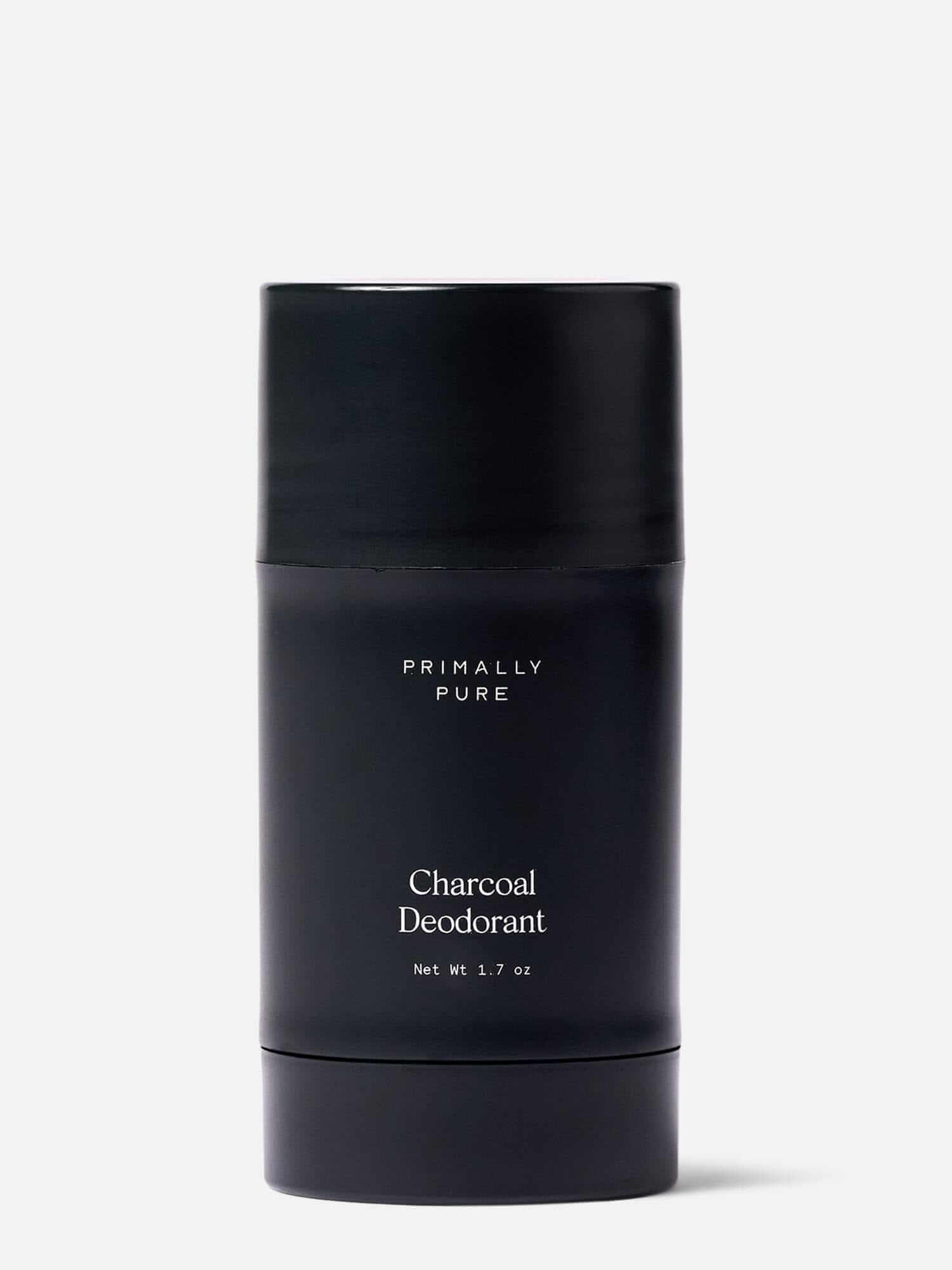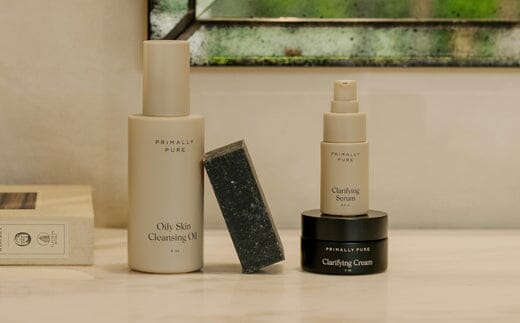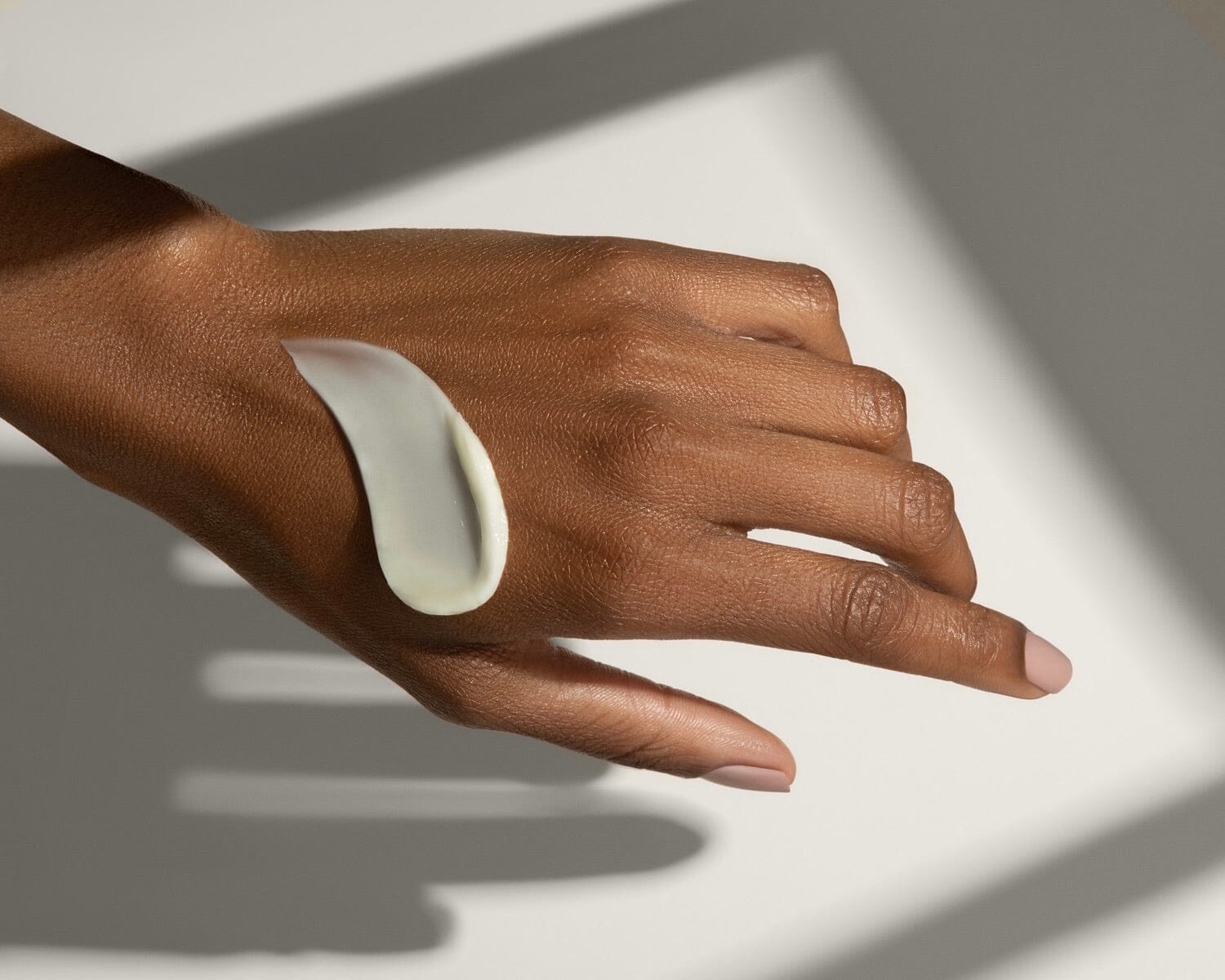Why Stress Sweat Smells So Bad + the Best Ways to Manage It
Summary
Stress sweat is not fun, but it doesn’t have to run your life. Take back the power by learning to manage stress sweat + understand why it happens.
You’re walking into a nerve-wracking meeting or having a hard conversation with a friend.
You almost get into a wreck while driving – narrowly missing the car in front of you.
You're sitting in traffic, praying the cars start moving so you can get to daycare before they close (and charge you a late fee for the third time this week).
You’re getting ready for a first date with someone you’ve had your eye on for months.
Chances are you’re sweating.
Why?
A little (pesky, yet natural) thing called stress sweat.
Sweat from stress isn’t your average sweat after a workout or time outside on a hot day. It’s a particularly stinky form of sweat that we all struggle with in times of heightened emotional response. This type of nervous sweat isn’t exactly your friend, but it IS a normal part of life we all experience.
We’ve all been there – so you’re not alone. Or gross. :)
That’s why we want to show you how + why it happens. So that next time you find yourself in the middle of heightened emotions, you’ll feel empowered to minimize the severity of the sweat and move on with your day.
Freshness has never smelled more appealing.
Sweat Explained
To understand the difference between normal sweat and the kind you experience under stress, let’s scale back and take a look at the process of sweat + some basic facts. Then you’ll understand why it smells – and, more importantly, what you can do about it.
First things first: there’s a big misconception that sweat itself is what smells. Nope.
→ So why does it smell? We’ll get to that. ;)
We all have two main types of sweat glands: eccrine and apocrine glands.
Eccrine glands create your “normal” sweat – from exercise, overheating, or vigorous activity. Eccrine glands are located all over your body toward the skin's surface. Your brain’s hypothalamus is always monitoring your body temperature. When temps within your body increase above normal/healthy levels, it signals the eccrine glands to produce sweat to cool the body so you don’t overheat.1
The resulting sweat is a watery consistency – made up of about 99% water and small amounts of urea, uric acid, ammonia, lactic acid, vitamin C, and more.2
When it hits the surface of your skin it cools your body down. Sweat glands also serve as a detox pathway for toxins to escape your body.
So what about the other type of glands?
Apocrine glands create the lovely liquid we know (ahemmm, hate) as stress sweat. Instead of being activated by temperature, these glands are activated by the hormones produced when you go into fight-or-flight mode.
*A key difference: sweat from stress comes from the roots of hair follicles instead of the surface of the skin. (Aka areas like scalp, armpits, and groin.) It’s thick and fatty in consistency with proteins, lipids, and steroids.1
Now that you know the basics, let’s talk about the real reason you’re here: to understand pesky stress sweat + how to resolve it.
What Causes Stress Sweat
We all sweat, but why does it smell so startlingly different when we’re feeling overwhelmed or emotional? Here’s the lowdown.
Being scared, stressed, and anxious automatically causes your body to go into fight-or-flight mode. While this isn’t a fun state to be in, it’s a survival instinct we’ve all inherited from our ancestors – and totally normal.3
When your body goes into fight-or-flight mode, it activates several different bodily responses, including:3
- Releasing adrenaline
- Creating stress hormones (cortisol)
- Increasing heart and respiratory rates to increase oxygen flow to your muscles4
- Boosting blood flow
- Tensing muscles
The adrenaline rush + hormones activate apocrine sweat glands. This starts the process of creating stress sweat. (Your normal glands will probably produce some sweat in response, too – it’s not mutually exclusive for the fight-or-flight sweat response.)
As we mentioned, even with stress sweat, it’s not the actual sweat that smells. The smell comes from the bacteria that reside in your sweat glands and hair follicles. When they mix with the oily, fatty sweat they break down to form + release an unpleasant odor.2
Though it’s worth noting: all sweat can be smelly at times. Sweat from your eccrine glands (normal sweat glands) can also smell if it mixes with certain bacteria on the skin.5 It’s just more common for sweat from stress to have an intensely noticeable odor.
In a world that is constantly moving too fast, full of anxiety and nerves, and double-booking ourselves, it’s not surprising that many people struggle with this.
But what can you do about it?
How to Be Calm in the Moment + Prevent Stress Sweating
You’re panicked, stressed, or anxious. What can you do in the moment to help your body exit fight-or-flight mode? Like we said, fight-or-flight mode, and even the smelly sweat aren’t harming your body. It’s the prolonged (or frequent) state of fight or flight that puts stress on your body + does harm long-term.
And truthfully, you probably won’t be able to totally eliminate it. But there are things you can do to create a peaceful mind + body that results in fewer situations of stress sweating.
The best way to address it in the moment is to learn how to regulate and return to a state of calm – exiting fight-or-flight mode. Here are some of our favorite ways to combat sweat from stress – and the resulting odor.
Breathing Techniques
Breathing is an excellent way to slow the production of stress hormones – and hopefully slow the stress sweat too. Try one of the following breathing techniques:
- Breathing through the nose, not the mouth. Nose breathing is much more efficient in delivering oxygen to the body that is filtered, warmed, and ready for your body to utilize. Which means quicker relief from stress.
- Square breathing. This simple breathing technique helps calm your nervous system by slowing down breathing through counting. Take one breath in for four seconds, hold it for four seconds, breathe out for four seconds, and then pause for four seconds before taking another breath.
- Diaphragm breathing. This means sending air to your diaphragm (belly area) instead of only filling your chest. This type of breathing sends the most oxygen to your lungs. And as we know, the sooner a good supply of oxygen enters your body, the sooner you can exit fight-or-flight mode.6
Breathing is one of the best ways to naturally calm your body. So it’s a no-brainer when it comes to minimizing your stress. Less stress, less stress sweat!
Detox Your Pits
If you’ve used traditional drugstore deodorants and antiperspirants for most of your life, it can create a build-up in your body. That’s why it’s important to detox your pits regularly.
Many people in our community find that after they detox their pits, they don’t have nearly as many issues with smelly sweat, and their non-toxic, natural deodorant works great.
Take our customer Kaleigh’s testimony, for example:
“I was incredibly skeptical about natural deodorant – I stress sweat, and it is BAD! I will NEVER go back to drugstore-brand deodorant. My pre-teen son is just starting to wear deodorant, and I bought [it] for him as well. Glad he smells great and is wearing a safe, clean product!” -Kaleigh
You never know until you try, right? ;) We recommend detoxing your pits before switching to natural deodorant – or any time you feel like your pits need a refresh. Then they’re able to fight off odor easier.
Meditation or Prayer
Taking time in deep thought and a peaceful mindset helps quiet your mind, slow breathing, and activate your parasympathetic nervous system. This will help kick the stress quickly. The best part – you can do it from anywhere, at any time.
Not to mention, both these practices help you build a positive mindset that makes you more resilient to stress in general. Aka, fewer occurrences of stress sweat – yes, please!
Everything Spray
We might be biased, but our Everything Spray can do (almost) everything. The organic raw and unfiltered apple cider vinegar contains antibacterial, antifungal, and antiviral properties and helps reset your skin's pH to fight odor-causing bacteria. Tea tree oil, also known for its antibacterial properties, adds even more protection against bacteria.
You can layer it with your deo (before and after application) for extra protection throughout the day. You can also keep a small bottle handy and spritz a few sprays directly on your armpits when you’re experiencing a bout of stress sweat.
Sweat from stress can come at the most inconvenient (and embarrassing) times – but you can stay prepared with our all-purpose spray.
Vagus Nerve Exercises
The vagus nerve is a nerve that runs through your entire body to regulate a variety of important bodily processes. Incorporating some intentional vagus nerve exercises stimulates the parasympathetic nervous system to help regulate stress, hormones, and bodily reactions – like stress sweat. ;)
If you’re not familiar, here are a few examples of vagus nerve exercises you can try:
- Vocal chord vibration (humming or singing)
- Rhythmic massage (lymphatic massage, dry brushing, gua sha)
- Cold showers (Cold water immersion)
Not only do vagus nerve exercises have the potential to help regulate stress sweat, they also help regulate important markers like a rushed heartbeat and high blood pressure. Win-win.
Add More Magnesium
Magnesium helps reduce stress levels, anxiety, and regulate sleep.7 Add more magnesium into your routine with a daily supplement, topical spray, or a bath. (We love adding magnesium to a bath because baths have other proven health benefits.)
Here’s another idea: if you have a float studio nearby, book a session. A sensory deprivation tank with magnesium has been shown to significantly lower cortisol levels (by 21%) and increase the ability to handle stress.8
This type of support to handle stress better results in – yep, you guessed it – fewer occurrences of stress sweat.
Non-toxic Deodorant With Odor-blocking Oils + Botanicals
One study showed the effects of stress on your sweat production:9
“Your underarms secrete approximately 30 times more sweat when you’re under stress than when at rest.”
Pretty crazy, right?
That begs the need for a high-quality deodorant with some serious odor-fighting capabilities. Lucky for you, we’ve got just the thing. ;)
Our non-toxic deodorant lineup contains odor-fighting and bacteria-reducing ingredients like:
- Coconut oil – with lauric acid that repels bacteria and calms inflammation
-
Baking soda – (naturally mined for less irritation) helps with odor protection and moisture absorption.
- For our super sensitive friends, we have a baking soda free deodorant that uses magnesium as the main odor-fighting ingredient!
- Charcoal – detoxifies + adds protection against odor and sweat
- Kaolin clay + Arrowroot powder – moisture-wicking properties to minimize sweat without blocking pores
- Essential oils – antibacterial, antimicrobial, and antiseptic oils like peppermint, eucalyptus, lavender, and tea tree oil masks + reduces the odor of stress sweat
Tip: Keep one of our smaller size deos in a bag, at your desk, etc. for on-the-go protection.
Along with lifestyle tips, it’s practical to have the right deodorant on hand. It can go a long way in managing stress sweat.
Take Back Control + Learn How to Navigate Sweat From Stress
The bottom line? Sweat isn’t always fun, but it’s a part of life – for everyone.
Equipped with a capable deodorant + stress reduction techniques, you can begin to enjoy life again without the worry of stress sweat ruining your day.
Take back control with proven stress-reducing, calming, and practical practices that will keep odor at bay and your mind at ease. Shop our non-toxic deodorant to get started on your journey of saying goodbye to pesky stress sweat. You’ve got this!
Sources:
- Wiley Online Library | Short History of Sweat Gland Biology
- Cleveland Clinic | Breaking a Sweat: Why You Sweat and What It Says About Your Health
- Houston Methodist | How Sweat Works: Why We Sweat When We’re Hot, as Well as When We’re Not
- Healthline | Fight, Flight, Freeze: What This Response Means
- National Library of Medicine | Mapping Axillary Microbiota Responsible for Body Odours Using a Culture-Independent Approach
- American Lung Association | Five Ways You Might Be Breathing Wrong
- National Library of Medicine | Magnesium and Affective Disorders
- Journal of Applied Physiology | Restricting Environmental Stimulation Influences Levels and Variability of Plasma Cortisol
- Science Oxygen | Why Is Stress Sweat Different?
Pin your fav blog post below:





Leave a Comment